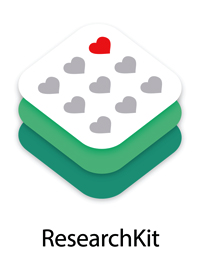
ResearchKit has grabbed such attention. Maybe not as much as The Watch, but amongst the minority of us who pay attention to such things. And the reactions have been typically polarized—it’s either an “ethics quagmire” or “Apple fixing the world.”
But reality rarely presents an either-or proposition. I’ve written before on the need to use technology in simple, scalable ways to engage more participants in research and capture more data. Every form of engaging with patients and conducting research is fraught with potential for bias, bad data, and ethical dilemmas. Properly controlling these factors is difficult, and the current handling of these factors lead many to conclude that clinical research is overly “bloated and highly controlled”. There’s truth to that, but the fundamental need for good controls is real. As technology enables us to engage in new ways, how we implement such controls is likely to transform, perhaps unrecognizably so.
I don’t think Apple—or anybody—has these problems fully solved yet. And I expect we’re going to a see a vigorous debate in coming years between #bigdata and #cleandata that I hope will lead us to more of both. But ResearchKit, or at least the announcement thereof, is a game changer. Whether or not ResearchKit in its present form becomes a widely adopted platform, the impact was felt overnight: “11,000 iPhone owners signed up for a heart health study using Apple’s newly-announced ResearchKit in the first 24 hours… To get 10,000 people enrolled in a medical study normally, it would take a year and 50 medical centers around the country”. ResearchKit builds on momentum towards patient-centricity established in the last five years within pharma, NIH, online patient communities, mHealth, and health care, and uses Apple’s consumer clout to bring it to the attention of the average person on the street.
So let’s break down what we know about ResearchKit. Since this is a blog about OpenClinica, we’ll also share early thoughts on how we see OpenClinica, ResearchKit, and OpenClinica Participate fitting together.
It’s Open Source. Great move! We’ll learn more about what this means when the code is released next month.
The technical paper indicates it is a front-end software framework for research, and that they expect it to expand over time as modules are contributed by researchers. Through use of both platforms’ APIs, OpenClinica could serve as a powerful backend and ‘brain’ to ResearchKit.
It’s not clear if data goes through Apple’s servers on its way to a final destination. I also haven’t seen anything from Apple mentioning if it will be portable to other non-iOS platforms (which represent 80% of mobile device market share), though its open source nature would suggest that will be possible.
Surveys. Analogous in many ways to the forms module in OpenClinica Participate, it is a pre-built user interface for question and answer surveys. As somebody who’s worked in this realm for years, I know that this can mean a lot of things. What specific features are supported, how flexible is it, how easy is the build process? Perhaps most important, can it be ported to other mobile app platforms, or to the web?
Informed Consent. The need for fundamental ethical controls for for research conduct and data use are just as important in the virtual world as they are in the brick-and-mortar realm, and Informed Consent is a cornerstone. I’m glad to see ResearchKit taking this on; I don’t expect they have it 100% figured out, but their work with Sage Bionetworks, who has released an open toolkit on Participant Centered Consent, is a great sign.
Active Tasks. Maybe the most exciting component, here’s where ResearchKit takes advantage of the powerful sensors and hardware in the device and provides a way to build interactive tests and activities. In this way, I expect ResearchKit will be a great complementary/alternative frontend to OpenClinica Participate when specialized tests tied to specific, highly-calibrated devices are required.
In general, the promise is big: that technology will lower barriers in a way that leads to fundamental advances in our understanding of human health and breakthrough treatments. That we’ll go from data collected once every three months to once every second, and we’ll encounter–and solve–problems of selection bias, identity management, privacy, and more along the way. And that, according to John Wilbanks at Sage, “there’s coming a day when you’re not going to have an excuse to have a tiny cohort just because you chose not the use digital technologies to engage people.”
